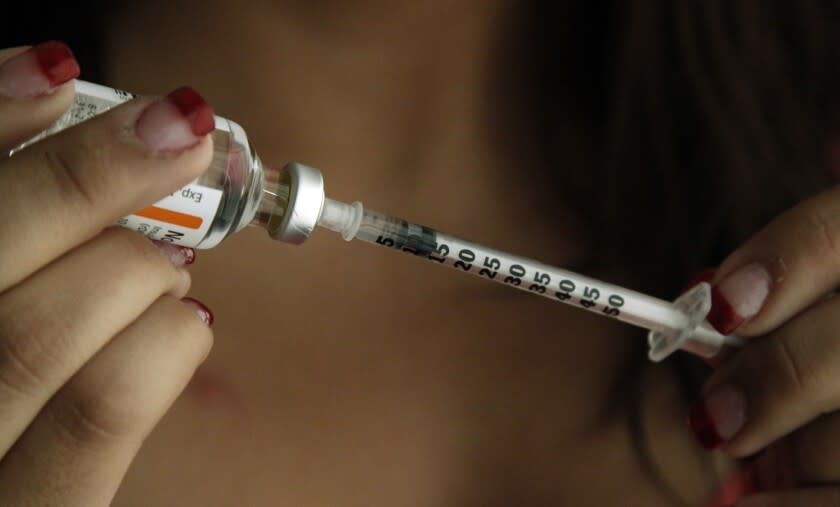Letters to the Editor: 'Value-based drug pricing' is doublespeak for a deadly system

To the editor: In an op-ed article, researchers from Tufts University assert that "to strike the right balance, policymakers should look to value-based drug pricing — that is, pricing drugs according to the health benefits they deliver."
So-called value-based drug pricing is a good example of doublespeak, attaching an innocuous or positive word to a truly horrible concept.
Value-based drug pricing gave us insulin priced so high that uninsured people have a choice of controlling their diabetes or eating. Value-based drug pricing gave us the EpiPen, a drug-delivery device that saves lives, retailing for $500.
Can you imagine watching your child struggling to breathe and weighing whether you should administer $500 worth of medication into their veins, hoping that they will be able to breathe without the lifesaving but really expensive shot?
The authors' values are not mine. My values include free and very low cost medicine for everyone. My values are that no one has to factor in the cost of lifesaving or life-extending medication.
Value-based drug pricing is one of the reasons why America has the highest cost of healthcare but nearly the lowest life expectancy among developed countries.
Nancy L.C. Steele, Altadena
..
To the editor: The authors want to price drugs based on the relative health value they provide. How about favorable pricing of new drugs that were researched and developed at public and private universities and paid for by taxpayers?
The journal Proceedings of the National Academy of Sciences has noted that the National Institutes of Health funded all or part of the research that contributed to developing the 210 new drugs approved by the U.S. Food and Drug Administration from 2010-16.
Since we taxpayers paid for much of the research, shouldn't we be receiving the cost benefits once a drug reaches the market?
Michael N. Antonoplis, Sherman Oaks
This story originally appeared in Los Angeles Times.

